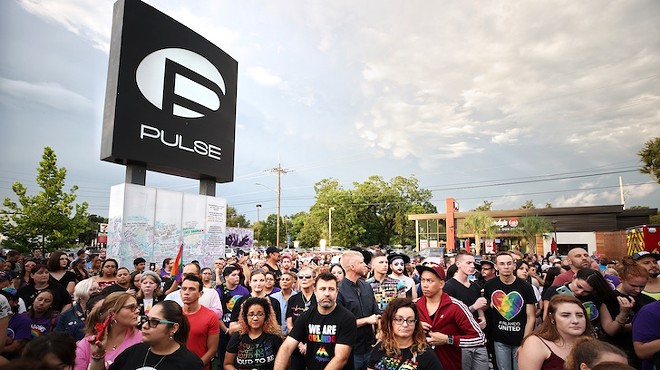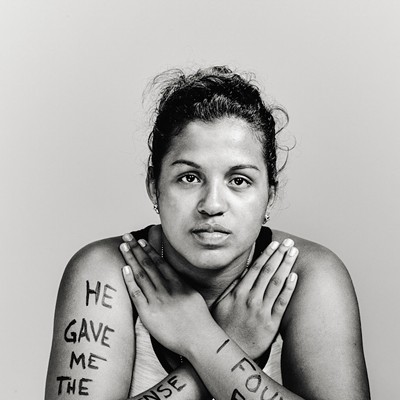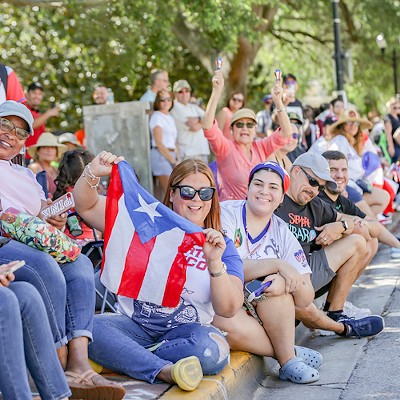The OnePulse Foundation board recently voted to dissolve the organization, and canceled a separate $10 million agreement it’d entered into with Orange County to fund a Pulse museum.
Orange County government is set to inherit a property on West Kaley Street that OnePulse bought for the project — but with that could come an obligation to pay the state back for unused funds.
Under a state agreement approved in 2019, OnePulse was obligated to build its museum by 2029 — or else pay its grant back.
The state awarded OnePulse funds up to $500,000 in 2019. As of this month, $394,312 had been used, a OnePulse spokesperson confirmed.
The Pulse museum was intended to memorialize the victims and survivors of the 2016 mass shooting at Orlando’s Pulse nightclub, a horrific tragedy which killed 49 victims — mostly LGBTQ+ people of color — and wounded at least 53 more.
The museum idea itself was unpopular among some shooting survivors, who saw it as a form of profiteering by an organization that was founded by former Pulse club owner Barbara Poma.
Poma, OnePulse’s former executive director, became the face of the organization in its early years as a mega-fundraiser. She stepped down from her executive role, where she collected a six-figure salary, last year.
The Pulse Museum, initially estimated to cost $40 million, had been years in the making. But as of October, little progress had actually been made, beyond a $3.5 million land purchase near the former club site, and $3 million worth of design services.
Both were funded through the $10 million tourist development tax grant that Orange County leaders awarded to OnePulse in 2018.
OnePulse requested a termination of that county agreement in October, at the same time they decided to give up on the museum.
The organization said it would return the museum property site and forfeit the $3 million of public tourist development tax dollars left unspent, since it wasn't awarded in any sort of lump sum.
The $3 million spent on design services, meanwhile, is “unrecoverable,” according to the county, which required quarterly progress reports from OnePulse as part of their agreement.
“We required them to provide us with those design cost requisitions and any requisition for the property acquisition,” Whitney Evers, assistant county attorney, told the Orange County Board of Commissioners Tuesday. “And as we received those, they were reviewed and they were paid out.”
OnePulse also offered (then quickly backtracked) to return individual donations made specifically for the museum over the years. The nonprofit’s former executive director, Deborah Bowie, who resigned from OnePulse last month, said ahead of her resignation that the money had already been spent.
Several county commissioners, as well as Mayor Jerry Demings, said on Tuesday they wanted a financial audit of OnePulse, echoing similar calls from a group of Pulse survivors and victims’ families, who also want a forensic audit of the organization at large.
“I will be honest, I'm so frustrated and hurt because this is a tragedy that took place seven and a half years ago,” said county commissioner Mayra Uribe candidly. “We’ve met families, we've met individuals who are so frustrated, have questions, are angry, are sad — and we’ve done nothing to support these families or memorialize their family members that have passed in this time.”
But now, another unanswered question is: Who’s actually on the hook for paying the state back for the nearly $400,000 in state grant money that OnePulse wasted?
The county’s legal team is still trying to figure that out.
According to Orange County attorneys, the use of state funds for the museum required OnePulse to record either a surety bond on the museum property or a restrictive covenant (a clause that limits how the property can be used). OnePulse decided to go with the restrictive covenant, after securing the county’s consent.
The restrictive covenant, however, leaves the property owner on the hook for paying the state back if there’s not a museum or other “cultural facility,” as defined under state statutes, sited there by 2029.
“It is a restrictive covenant … and the chain of title runs with property and is binding on any successors in interest,” said Evers. “Meaning that, if that is not resolved before the property is conveyed back to the county, the county could be on the hook to repay that obligation.”
Scott Bowman, chief of communications for OnePulse, told Orlando Weekly the nonprofit notified the state of their scrapped museum plans shortly after the museum property was returned to Orange County.
“A representative from the Florida Department of State, Division of Arts & Culture let the foundation know at that time that they were sharing the information with their general counsel to get guidance on next steps,” said Bowman over email. “The foundation is waiting for information on next steps.”
Bowman declined to provide Orlando Weekly with a copy of the state grant agreement in question, deferring to the county. Orange County provided a copy of the agreement reviewed by Orlando Weekly and depicted in a screenshot below.
Assistant county attorney Evers told county leaders Tuesday that it’s going to take an estimated three months for a property agreement — for the purchased museum property — to come before the board.
The county has to perform inspections of the site, a portion of which OnePulse leased out through three unauthorized licensing agreements, in a breach of its contract with the county.
The county delivered a notice of default to OnePulse concerning that breach last week. It gave the nonprofit 60 days to terminate those agreements and to evict the company using the building on the land parcel.
The county also has to determine the worth of the property, which was bought by OnePulse in 2019. “Ultimately, we are going to have to get through the process we outlined today to understand where we are with the building and what the value is,” said Evers.
An internal cost estimate from the county’s real estate department found the property could be worth closer to $4.5 million, up from the $3.5 million it was purchased for in 2019.
“The board will then need to decide whether you want to keep the building and use it for something else, or whether you want to sell the building and take the funds to, in the unfortunate event we need to pay it, to pay the state grant and use the rest for TDT [tourist development tax] reserves,” said Evers.
Museum or no museum?
Uribe was in favor of moving forward with a museum concept, while Mayor Demings and commissioner Emily Bonilla expressed reluctance. Demings acknowledged that the idea was “controversial” among a number of victims’ family members.
“Some people thought that [building a museum] was commercializing the tragedy, and they were in opposition to the museum,” said Demings. “And there were others who thought no, this is an opportunity to tell the story for the future, to preserve the history.”
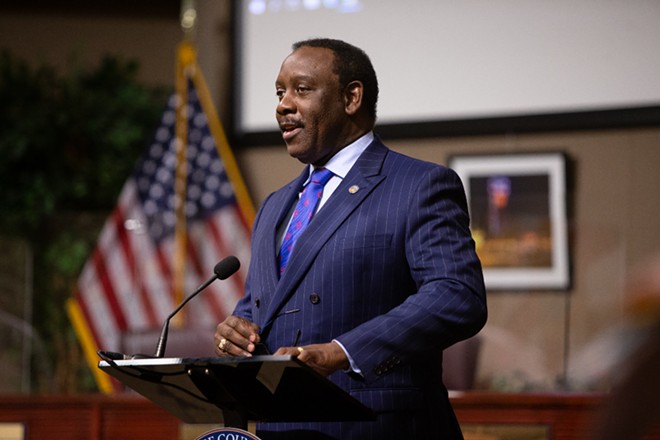
A group of survivors, family members, and former patrons of Pulse have for years protested the project, concerned it would serve only as a spectacle to pad the pockets of OnePulse, rather than meaningfully support survivors and families of the shooting victims.
OnePulse has been criticized for paying some of its executives six-figure salaries. Barbara Poma, the club owner and OnePulse founder and former executive director, collected nearly $250,000 in executive compensation in 2022, a tax filing shows.
George Kalogridis, a retired Disney World executive who currently sits as vice chair of the OnePulse Foundation board (an unpaid role), defended the organization’s executive compensation Tuesday.
“The salary is very much in line with the revenue of a nonprofit,” said Kalogridis, when questioned by county commissioner Emily Bonilla about Poma’s pay. “We studied that.”
He also explained that OnePulse executives, including Poma, took a 50% pay cut during the pandemic. “Everybody got that back. However, it showed up next year, and so that's why it looks like the salary jumped. But in fact, it was just a payment from the previous year.”
Bonilla took this response in stride, conceding that this isn’t uncommon among nonprofits.
“I know some nonprofits that we’ve given money to where the executive directors like doubled their salary,” she said, referring to post-pandemic accounting. “So it’s been happening with nonprofits out there that we're giving money to.”
But another revelation shared by the county's legal team strengthened the resolve of some county leaders to audit OnePulse.
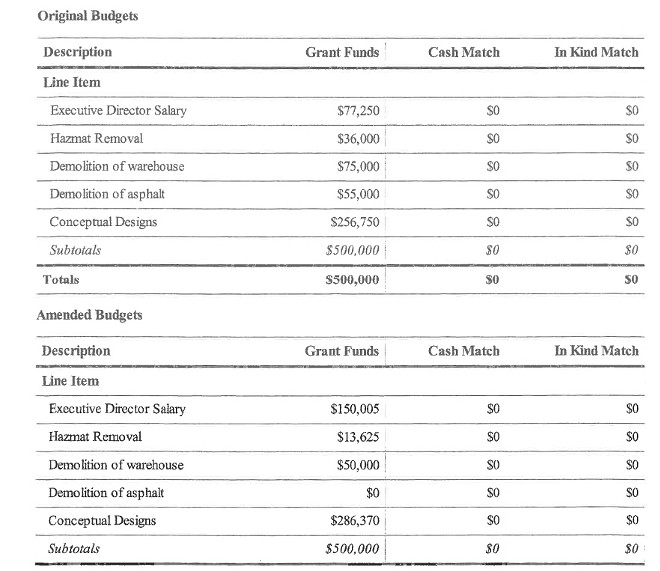
Where did the money go?
An amendment to the state grant OnePulse received back in 2019, obtained by county lawyers, showed that OnePulse later amended its line-item breakdown of how it planned to use its $500,000 grant.
That amendment, made in 2020, showed OnePulse planned to nearly double the amount of money that'd go toward the salary of its executive director — from $77,250 to about $150,000. Cuts were made to funds that would have been spent on hazmat removal and demolition work. At the time that amendment was made, the executive director of OnePulse was Barbara Poma.
Poma, her husband and a business partner, Mike Panaggio, refused to donate the actual Pulse nightclub site to OnePulse for a memorial, Kalogridis said.
“We asked for it to be donated, and they said no,” he shared. The Pomas had previously blamed Panaggio for an inability to reach a deal with OnePulse.
Bonilla and Uribe pointed out how ridiculous it was that Barbara Poma would refuse to donate the property to an organization she founded and led for years. Uribe said it was a clear conflict of interest. The agreement OnePulse had with Orange County, in contrast with the state grant, forbid the nonprofit from using its TDT funds to pay for executive compensation.
With memorial plans still up in the air, the city of Orlando went ahead and bought the Pulse property in October for $2 million, with plans to build a permanent memorial at the site.
Some survivors were upset with the purchase, unhappy to see any more money go to the Pomas. Some are concerned this purchase is a move by the city to cover up code violations at the club that were known to the city prior to the 2016 tragedy.
The continued heartache that’s felt over the messy development of a memorial to honor Pulse victims and survivors wasn’t lost on county leaders.
“[It] continues to be quite an emotional event for families and our community in general,” said Mayor Demings. “However, as a county, we do have to do our due diligence because of the contractual relationship that we have with the expenditure of the people’s money.”
Demings asked county comptroller Phil Diamond if the county had the authority to conduct an audit of OnePulse. Under the county’s agreement with the nonprofit, Diamond said they could at least audit the amount of money Orange County ended up awarding to the nonprofit.
But their authority to lead a broader audit, he said, was limited. “Our scope is just, ‘What did the county write the checks for?,’ if you will.”
The county has also asked OnePulse for financial documents, to ensure county funds weren’t mismanaged. “When we asked for the documentation, part of what we're trying to do there is help to answer that question, which is: Where did the money go?” said Evers, the assistant county attorney. “How much were they bringing in? How much is left? So that's what we're doing at this point.”
While OnePulse has publicly posted their tax forms and their own financial audits on its website, details of where their money has gone is not fully disclosed.
Kalogridis, in front of county leaders Tuesday, again defended the organization’s spending. “The audit, however you choose to move forward, will show the truth,” he said. “I'm quite confident as I stand here today that procedurally you're going to find everything was clean.”
But Commissioner Uribe wasn’t satisfied. “For the public, for these families, if we can't do it, we should ask the state to look into this,” she said. “We should ask the IRS to look into this because there has to be some accountability of the millions of dollars over all these years that have been spent.”
“There has to be some accountability of the millions of dollars over all these years that have been spent.”
tweet this
The OnePulse foundation was founded with the intent of providing “immediate financial assistance” to affected victims and developing a permanent memorial to honor the lives lost, according to initial paperwork filed with the state. Subsequent filings describe the organization's mission thus: "to create and support a memorial that opens hearts, a museum that opens minds, educational programs that open eyes and scholarships that open doors."
Yet, Uribe pointed out, there is still no permanent memorial, much less the nonprofit’s planned museum.
“It doesn’t quite sound right.” she said, adding that she doesn’t necessarily blame members of the volunteer board of OnePulse for these irregularities. “It just seems like there were a lot of things that came in front of you that just didn't quite add up,” she told Kalogridis. “I'm not saying that there was any[thing] malicious done, but just serious conflicts of interest.”
Because, at the end of the day, said Uribe, “Your passion was to serve all of those victims and their families.”
Jorshua Hernández, a survivor of the Pulse nightclub shooting who watched Tuesday’s meeting virtually from Puerto Rico (where he now resides), was frustrated by the proceedings.

He, like a number of survivors and families organized with Pulse Families and Survivors for Justice, does want a permanent Pulse memorial developed that’s open to the public.
He says he’s open to that being on the former property purchased by the city.
But he also wants a full investigation of OnePulse and the former club before any demolition work is done to make way for a memorial.
“They need to tell the truth,” he told Orlando Weekly.
All of this is wearing on him, he said. He still seeks medical care for bullet wounds from the shooting. With all of the new developments surrounding OnePulse and memorial plans, he has a hard time concentrating on much else.
“I want to be happy,” he said. “I don’t want to be talking all my life about this.”
Follow us: Apple News | Google News | NewsBreak | Reddit | Instagram | Facebook | Twitter | or sign up for our RSS Feed


